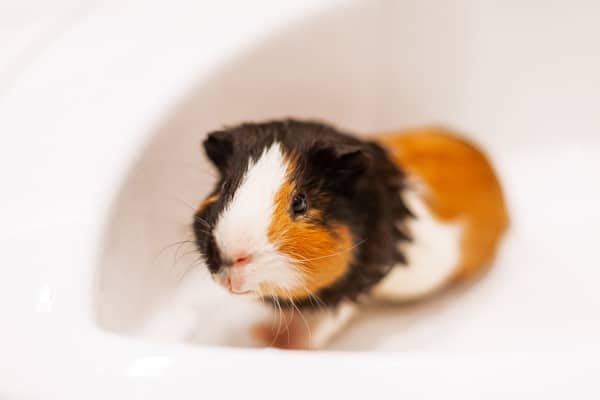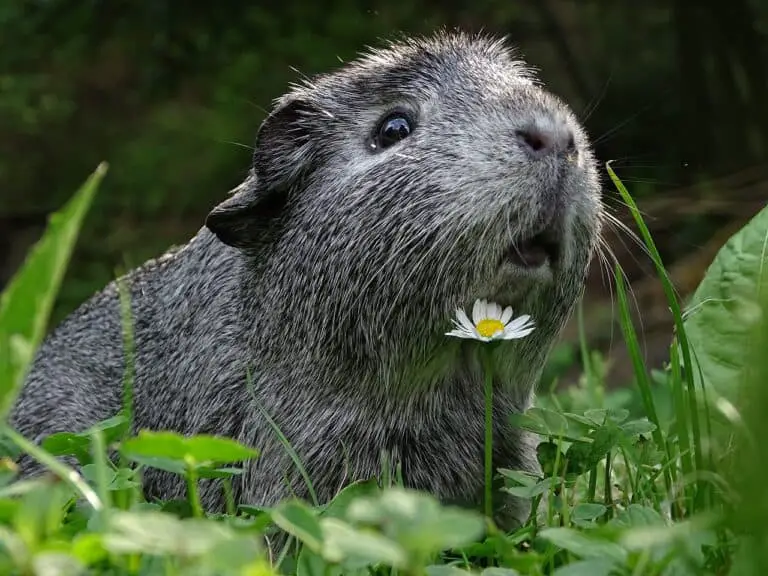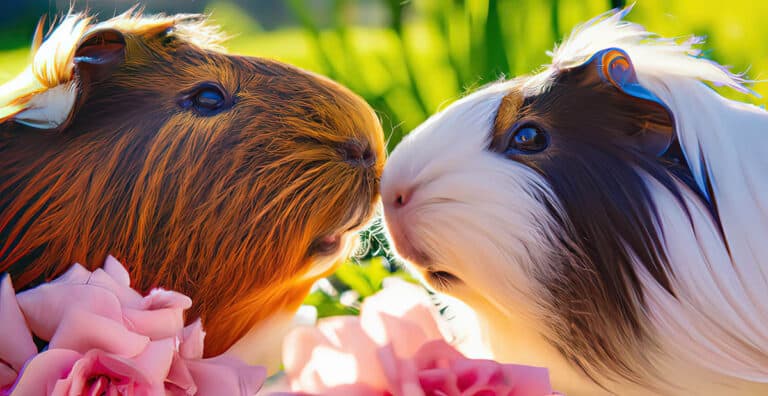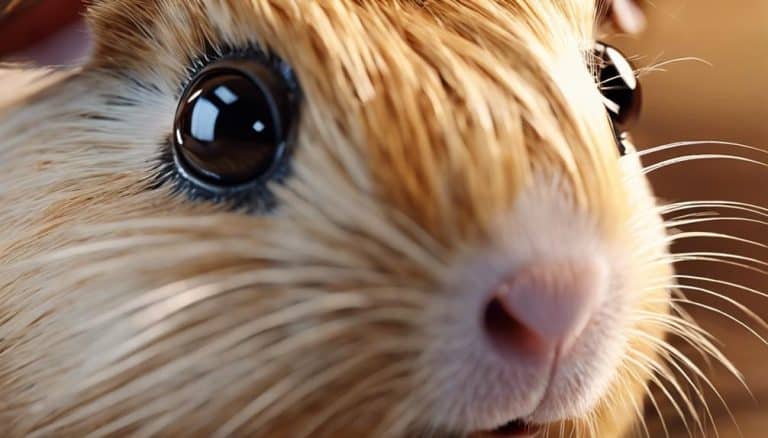The Safe Way to Bathe Your Guinea Pig: Why Dog Shampoo Might Not Be the Best Option
Guinea pigs are adorable small animals that make great pets. As a guinea pig owner, you must ensure that your pet stays clean and healthy. One way to do this is by bathing them regularly.
However, it is important to know how to bathe your guinea pig safely and what kind of shampoo to use, as using the wrong products can harm their health and wellbeing. In this article, we will discuss the safe way to bathe your guinea pig and why dog shampoo might not be the best option.
Why Should I Bathe My Guinea Pig?
How Often Should I Bathe My Guinea Pig?
Bathing your guinea pig helps keep them clean and remove any dirt or debris from their fur. It can also prevent skin problems such as mites and fungal infections. However, guinea pigs do not need to be bathed as often as dogs or cats.
Over-bathing can cause dry skin and lead to other problems, so it is recommended to bathe your guinea pig once every three months.
What Are the Benefits of Bathing My Guinea Pig?
Bathing your guinea pig has many benefits. Not only does it keep them clean and healthy, but it also provides an opportunity for you to bond with your pet. It can also help your guinea pig stay cool during hotter months and improve their overall hygiene.
By bathing your guinea pig properly, you can ensure that they live a happy and healthy life.
What Are the Risks of Not Bathing My Guinea Pig?
Not bathing your guinea pig properly can lead to several problems. Overgrown nails, dirty fur, and skin conditions are just some of the issues that can arise if your guinea pig is not bathed regularly.
Dirty fur can also attract pests like mites and fleas, which can cause significant discomfort for your pet. In severe cases, a lack of hygiene can even lead to infections. Cleaning your guinea pig regularly can help keep them healthy and happy.
Can I Use Dog Shampoo on My Guinea Pig?
What Are the Dangers of Using Dog Shampoo on Guinea Pigs?
No, you should not use dog shampoo to bathe your guinea pig. Dog shampoo is formulated for a dog’s Ph levels and is much stronger than the shampoo you need for your guinea pig.
Using it can strip the natural oils from your pet’s skin, drying it out and causing irritation, which can lead to skin conditions and other health problems. Additionally, dog shampoo often contains harsh chemicals that can be toxic to guinea pigs. Therefore, it is important to avoid using dog shampoo on your guinea pig at all costs.
What Kind of Shampoo Should I Use to Bathe My Guinea Pig?
Guinea pig shampoo or any other small animal shampoo is the best option for bathing your guinea pig. These shampoos are formulated for their delicate skin and have a mild fragrance. They contain natural ingredients that won’t irritate your pet’s skin. Look for shampoos that are free of alcohol, parabens, and other harsh chemicals.
Can I Use Puppy Shampoo on My Guinea Pig?
Puppy shampoo is formulated for dogs and is not suitable for guinea pigs. Although it may be gentler than regular dog shampoo, it still contains chemicals that can be harmful to your guinea pig’s skin. It is important to use the right kind of shampoo for your guinea pig to protect their health and wellbeing.
How Do I Bathe My Guinea Pig?
What Do I Need to Bathe My Guinea Pig?
Before you start bathing your guinea pig, there are a few things you need. You will need guinea pig shampoo, a bowl or sink to wash them, clean towels, and a hairdryer set to low heat. You may also need a helper to keep your guinea pig calm and prevent them from jumping out of the washbasin.
How Can I Keep My Guinea Pig Calm During Bath Time?
Bathing your guinea pig can be stressful for them, so it is essential to keep them calm during bath time. You can do this by talking to them gently and holding them securely. It is also a good idea to place a towel at the bottom of the sink to prevent them from slipping and becoming scared.
Do I Need to Dry My Guinea Pig After Bathing?
Yes, you need to dry your guinea pig after bathing them. Use a clean towel to soak up any excess water and then use a hairdryer set to low heat to dry their fur. Be careful not to hold the dryer too close to their skin, as this can cause burns and other damage. Your guinea pig should be completely dry before you put them back in their cage.
What Are the Alternatives to Shampoo for Bathing My Guinea Pig?
Can I Use Baby Shampoo on My Guinea Pig?
Baby shampoo is another alternative to guinea pig shampoo as it is mild and gentle. It is important to dilute the baby shampoo before using it on your guinea pig’s skin as it can be harsh on their eyes and other sensitive areas. Additionally, baby shampoo is designed for babies, not pets, so it might not be as effective as guinea pig shampoo.
Is It Safe to Use Human Shampoo on My Guinea Pig?
Human shampoo is not recommended for guinea pigs as it is too harsh for their delicate skin. Human shampoo can strip away natural oils and cause dry skin, leading to skin problems and other health issues. It is better to choose a shampoo that is specifically designed for guinea pigs or small animals.
Can I Use Dish Soap to Bathe My Guinea Pig?
No, you should not use dish soap to bathe your guinea pig. Dish soap is too harsh for their delicate skin and can cause dryness and other health issues. It is important to choose a shampoo that is specifically designed for guinea pigs or small animals, and avoid using any harsh chemicals at all costs.
What Are the Tips for Bathing My Guinea Pig Safely?
Should I Bathe My Guinea Pig in Warm or Cold Water?
You should bathe your guinea pig in warm water, as cold water can shock them and make them uncomfortable. Use lukewarm water, not hot or cold, to avoid damaging their skin.
How Can I Keep My Guinea Pig Warm After Bathing?
After you finish bathing your guinea pig, wrap them in a warm towel to keep them warm while you dry them off. Be sure to keep them in a warm room until they have completely dried off, as being cold can be harmful to their health.
What Are the Signs of Sensitive Skin in Guinea Pigs?
Guinea pigs are prone to skin problems and can develop sensitive skin easily. Signs of sensitive skin in guinea pigs include redness, itching, flakiness, and excessive grooming. If you notice any of these signs, it is essential to take your guinea pig to the vet for treatment and choose a milder shampoo for their baths.
Overall, bathing your guinea pig is an essential part of their grooming routine and helps keep them clean and healthy. It is important to choose the right shampoo, use warm water, and dry your pet off carefully to prevent any irritation or health problems. By following these tips, you can ensure that your guinea pig stays happy and healthy for years to come.
How often do guinea pigs need baths?
Guinea pigs need baths, but not too often. Generally, it is recommended to bathe your guinea pig once every three to four months. Although guinea pigs are relatively clean animals, they can get dirty, especially if they are not kept in a clean environment. When bathing your guinea pig, it is important to use a shampoo that is specifically designed for guinea pigs.
Regular shampoo can be harmful to their skin and may cause irritation. The shampoo for guinea pigs is safe for them and removes any dirt or oils from their skin and hair. Baths for guinea pigs need to be given in a shallow container of warm water, and you should never submerge your pet completely.
While it might be tempting to bathe your guinea pig more often, doing so can actually be harmful to their skin and lead to dryness and irritation. So, keep in mind to bathe your guinea pig only when they need a bath and to use guinea pig shampoo to keep them clean and healthy.
Is It Normal For Guinea Pigs To Smell?
It is relatively normal for guinea pigs, also known as cavies, to have a distinctive aroma. This smell can be best described as hay-like, as it comes from their dietary consumption of hay, veggies, and fruits.
Moreover, guinea pigs may carry a musky odor due to their sweat glands, which are concentrated on their paws. This odor ensures that the guinea pig can identify its own territory and communicate with other cavies. However, any sudden or strong smells, such as a fishy odor, may indicate an underlying health problem and should be addressed immediately.
Therefore, maintaining a healthy diet, regularly cleaning their bedding, and keeping their cage clean can help to minimize any unpleasant smells. In conclusion, while it is normal for guinea pigs to smell, owners should be observant of any unusual odors and address them accordingly with the help of a veterinarian.







